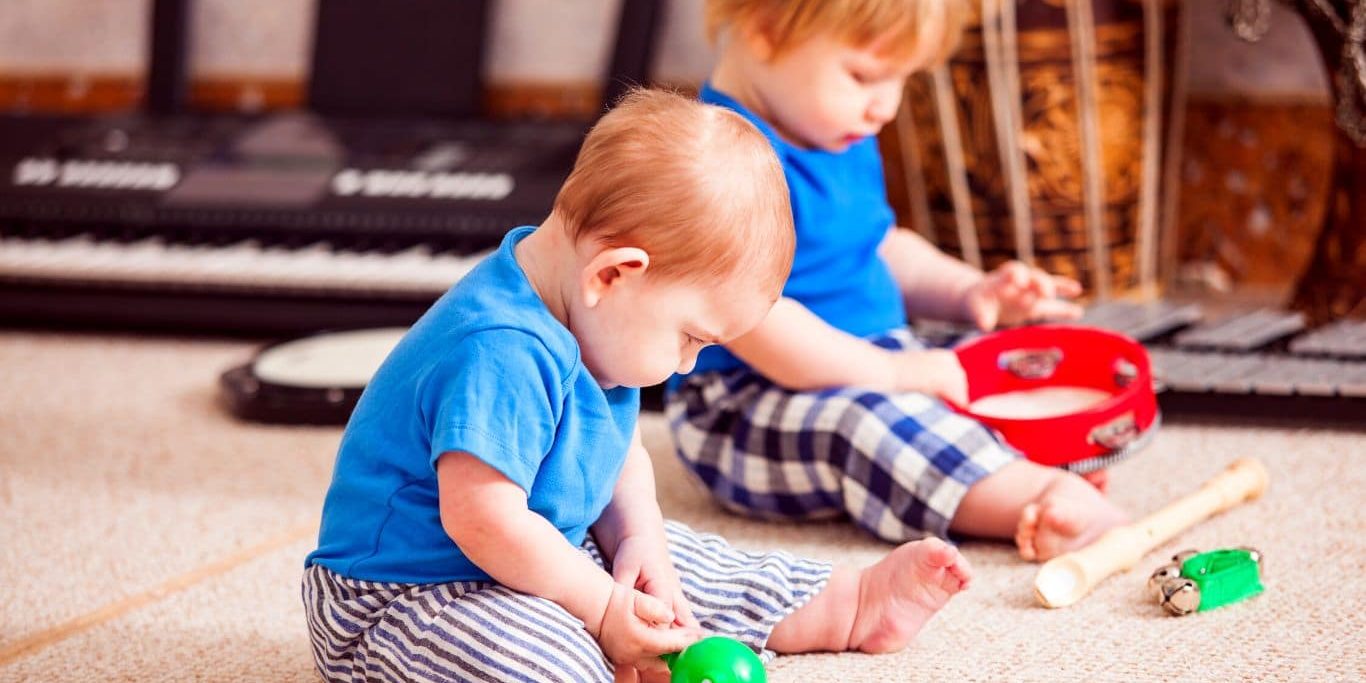Babies and toddlers really have the good life. When they’re not being showered with love, carted around in buggies or handed delicious meals, they’re playing with toys. How great it would be to go back to those carefree days!
Play is not just a fun way to pass the time, it’s actually the main way that babies and toddlers learn about the world around them and it’s vital for their physical and psychological development.
Benefits of play:
- Learning about the world around them, eg. how things fit together, the sounds things make when they hit each other, different shapes, textures, colours, smells, etc.
- Develops their imagination, problem-solving and creative thinking.
- Role-play games allow them to explore different perspectives and develop empathy.
- Helps develop gross and fine motor skills.
- Enhances their ability to deal with big emotions.
- Boosts self-confidence.
- Group play develops social skills including negotiation and conflict resolution.
- It’s their very first form of learning, so prepares them for school-based learning.
- Playing with a parent fulfils their need for attention which can make them less likely to misbehave for attention throughout the day.
- Taking time out of your day to play with your child increases their confidence and strengthens your bond.
- Improves communication between parent and child.
How much playtime do babies need?
Play should be incorporated into your baby’s day from when they are just a few days old. Tummy time is an important play activity for newborns as it develops their neck and back muscles. Do tummy time 2 to 3 times per day, for up to 5 minutes at a time. As your baby grows they will become more interested in the world around them. A playmat with hanging toys can be great stimulation while also developing their muscles as they begin to reach for hanging toys.
Playing with an infant can be as simple as making sounds together, looking in a mirror or singing songs.
How much playtime do toddlers need?
As your baby grows into a toddler, play is just as important for learning and development. It’s recommended to give a toddler at least one hour of free play time per day. This is playing without structure, so they can explore what interests them. You can choose open-ended toys like blocks or figurines to encourage their imagination. In addition, they should have 30 minutes of adult-led active play like playing football or dancing.
Playtime ideas for babies and toddlers
There is no perfect way to play. As long as an activity is safe and fun then it’s perfect. Here are some tips for a great time for both baby and parents:
- Follow your child’s lead. Toddlers have a desire for control which can often be hard to satisfy. Playing with your toddler is the perfect time to let them lead the way and be in control. This is a great way to reduce the number of tantrums in your child’s day as they feel like the dynamic between you is more equal.
- Ditch the screens. Screen time and playtime are best kept separate. Your child is unlikely to be able to fully engage with you or their toys whilst a screen is competing for their attention, meaning they’re not getting the full benefit from playtime.
- Stay off your phone. Many children report feeling ignored when their parent is looking at a phone. Pretending to be a dinosaur for the fifth time this week may not be the most mentally stimulating thing you do all day, but your undivided attention means the world to your little one.
- Explore a variety of different play types like arts and crafts, sensory play and active play. This keeps both you and your little one entertained and helps you find what your toddler is most interested in.
- Nursery rhymes, reading books and peekaboo are great for engaging younger babies.
- Attend local playgroups to allow your baby or toddler to socialise with other babies as well as learn new skills like sharing and advocating for themselves – which are important for when they start school.
- Turn everyday objects into toys. Babies and toddlers love to play with your stuff! Use pots and pans to make music or a storage box or washing basket as a boat.
The more play, the better for your little one. Spend some time in their world and enjoy acting like a kid for a while!







